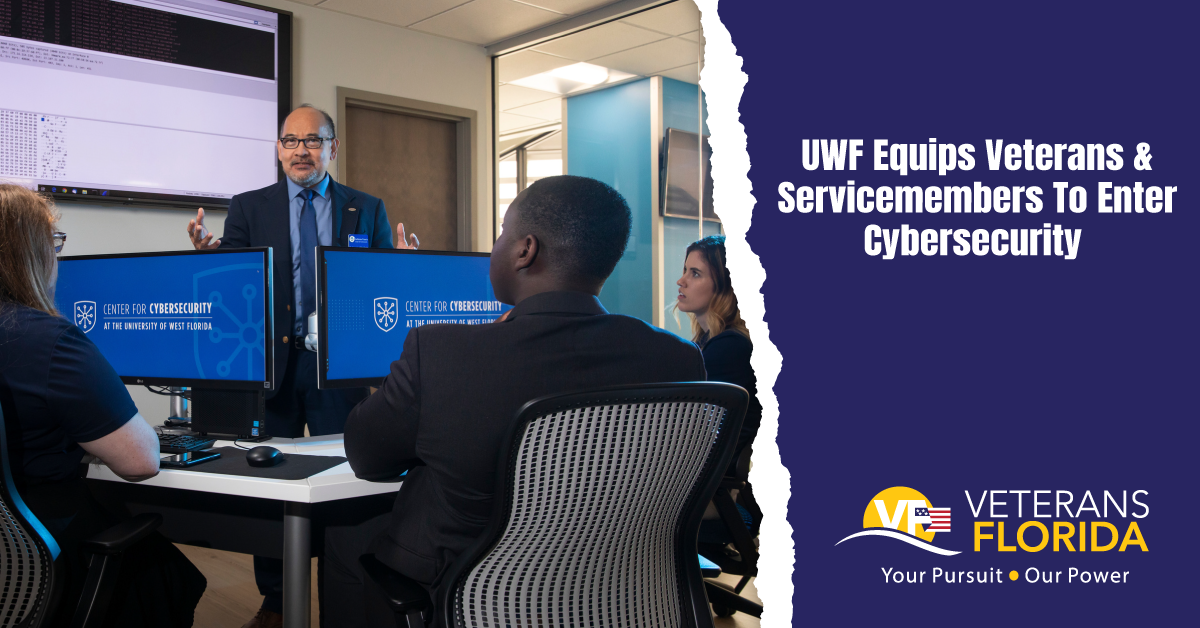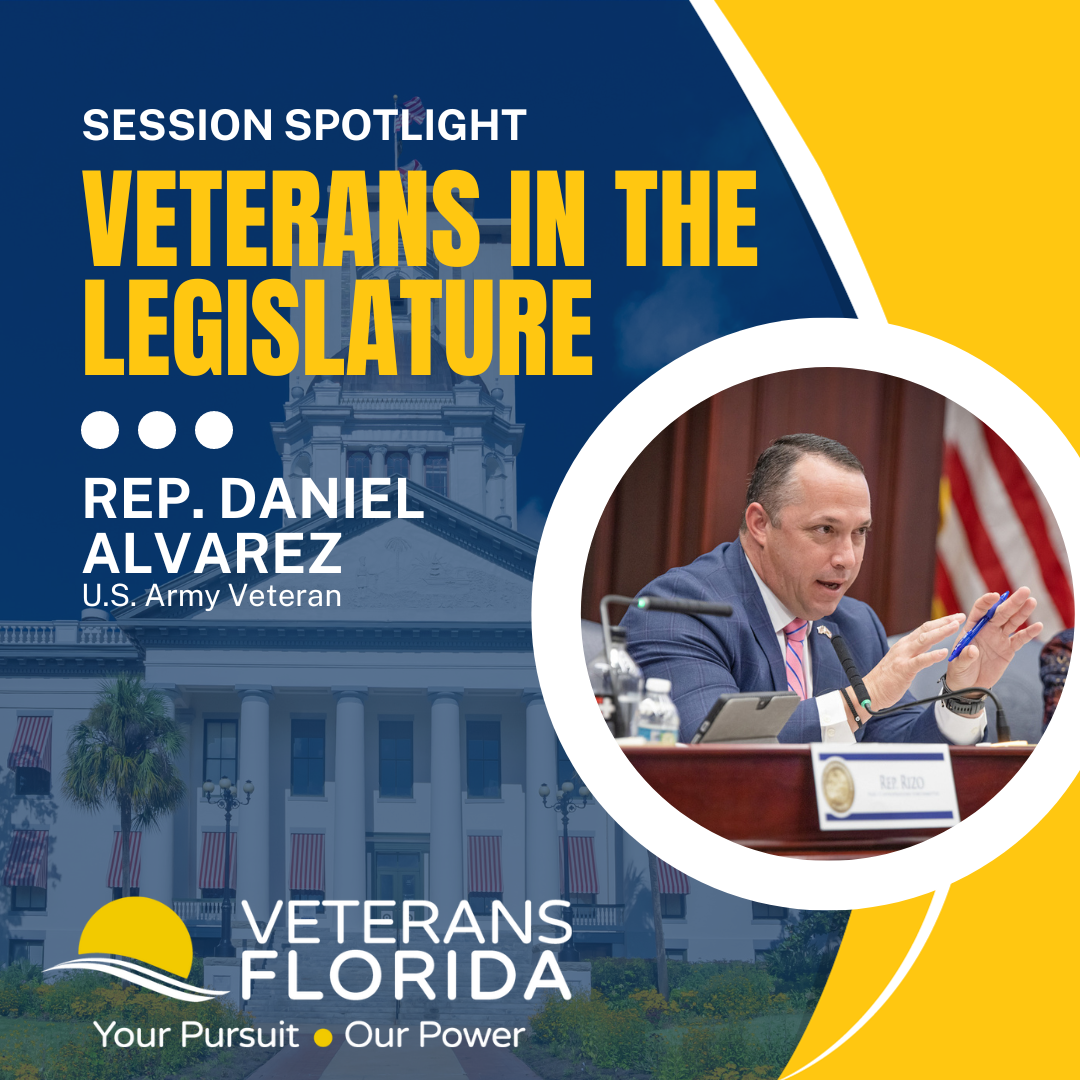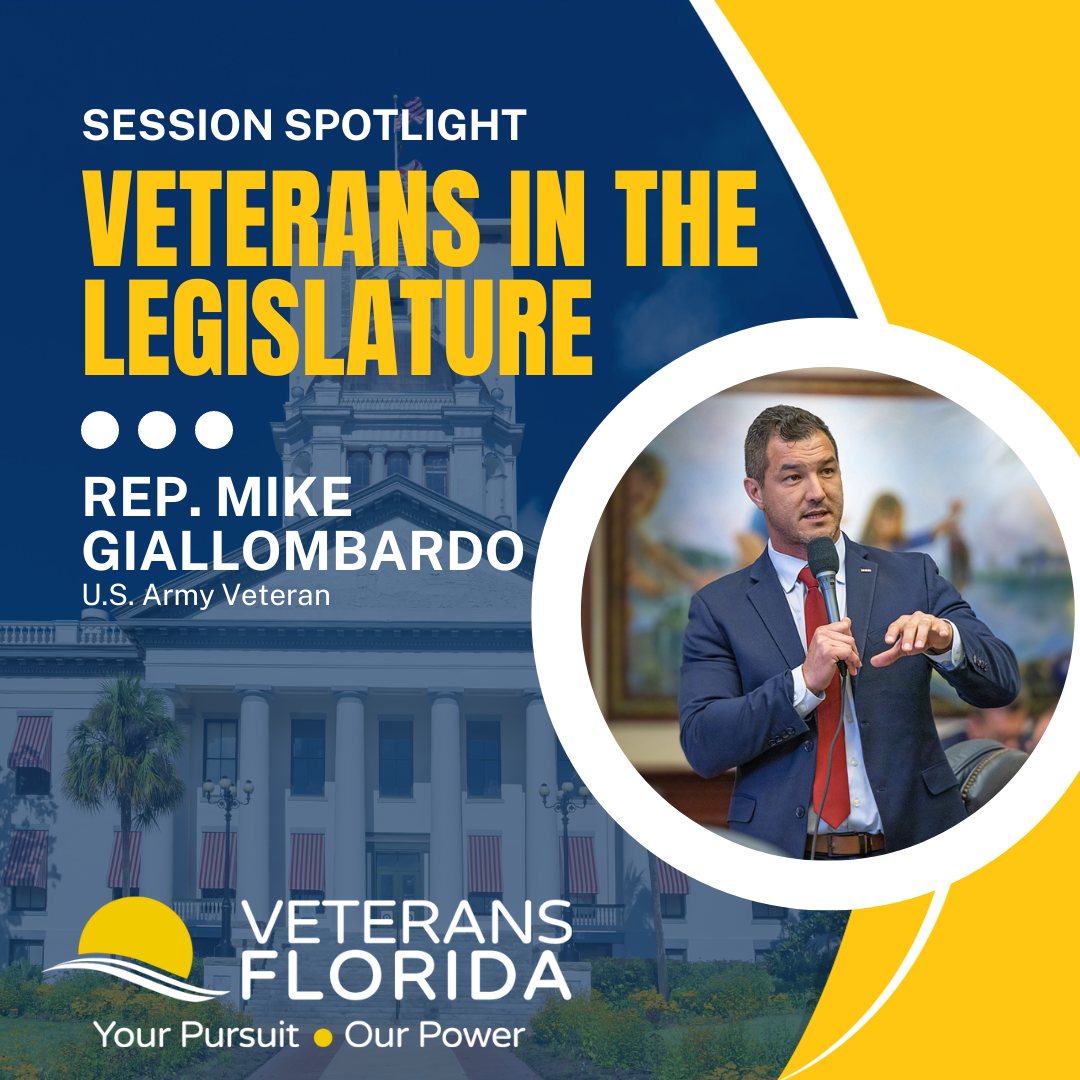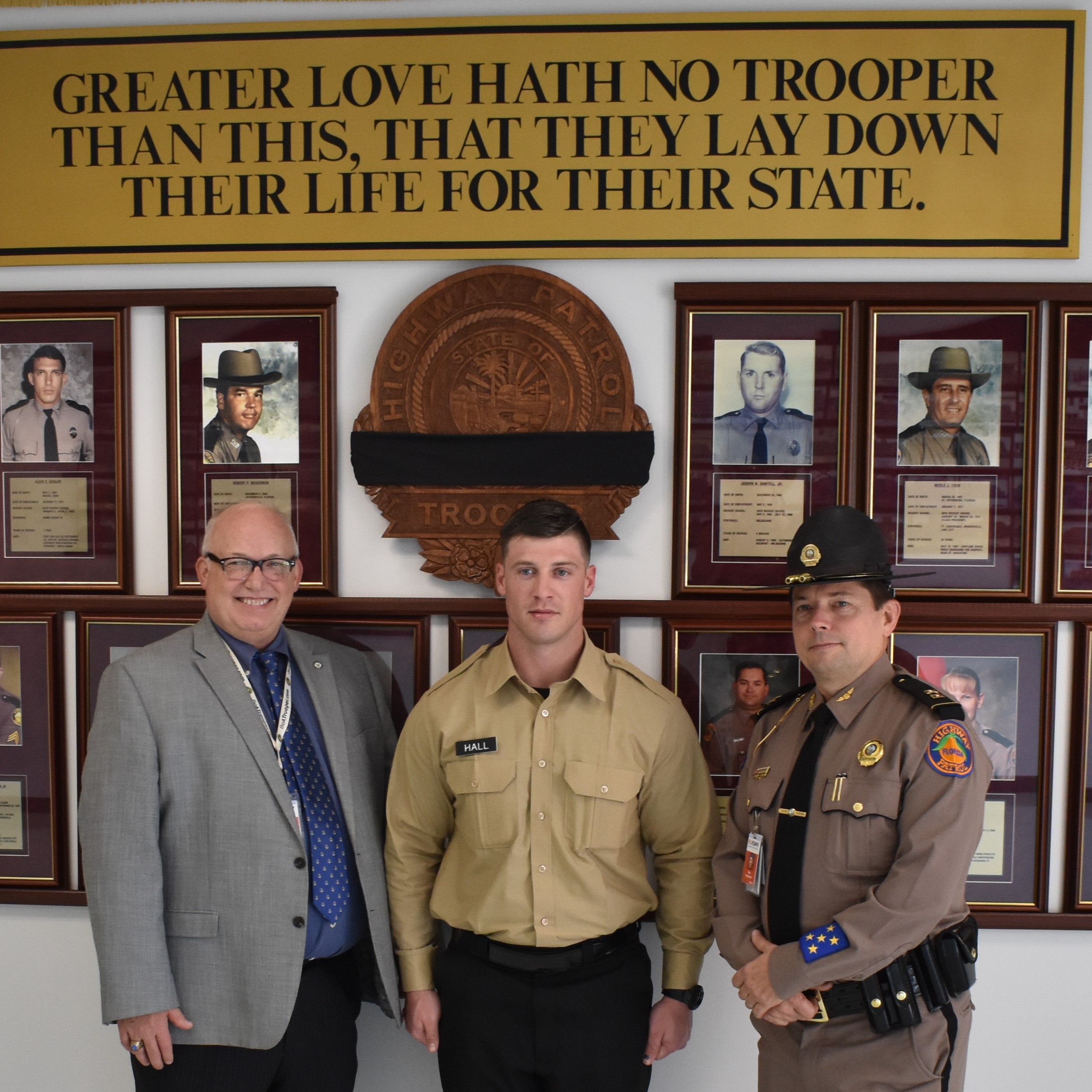As cyber-attacks become more widespread with new threats emerging every day, the demand for cybersecurity professionals has never been greater. And as usual, Florida’s at the front lines of the solution.
The University of West Florida’s Center for Cybersecurity spearheaded a national coalition with Cyber Florida at the University of South Florida, Florida International University, and seven other institutions to equip veterans and transitioning servicemembers with the skills and certifications to start and advance cybersecurity careers.
“There’s a critical shortage of qualified cybersecurity professionals, and across the country, we have over 500,000 unfilled cybersecurity jobs,” said Dr. Eman El-Sheikh, associate vice president for the UWF Center for Cybersecurity, adding there are more than 30,000 openings in Florida with an average starting salary of $68,000. “UWF took the lead on putting together a national cybersecurity workforce program with the idea of finding, developing, and offering alternative ways to help veterans and servicemembers get into cybersecurity.”
“Florida has a high number of transitioning military and veterans, and they bring great skills and expertise to jobs that are needed in cybersecurity.”
Dr. El-Sheikh continued: “We recognize that no matter what we as a university, state, or country do to get people into degree programs, it would never be enough because cybersecurity is such an evolving field where we hear about new threats daily.”
Designated as the National Centers of Academic Excellence in Cybersecurity (NCAE-C) by the National Security Agency, the UWF-led coalition created the CyberSkills2Work Program to rapidly expand the cybersecurity workforce in critical infrastructures such as defense, finance, and energy.
Dr. El-Sheikh said coalition members will train and place more than 1,650 veterans and transitioning servicemembers into cybersecurity jobs over the next two years and added many that already have sought-after soft skills from their time in the service, and only need the hard skills to get their foot in the door.
“Florida has a high number of transitioning military and veterans, and they bring great skills and expertise to jobs that are needed in cybersecurity,” Dr. El-Sheikh said. “Many of the jobs have underlying, common requirements: critical thinking, communication, problem-solving, and teamwork. Our nation’s heroes, by the nature of what they’ve done through their service, have all been in environments where they have those skills, and what they need are the technical skills in cybersecurity which is what we’re providing them.”
At the UWF Center for Cybersecurity, the UWF CyberSkills2Work Program provides free cybersecurity training and job placement assistance to veterans and transitioning servicemembers and offers two pathways based on prior experience: System Administrator and Cyber Defense Analyst.
“If transitioning military or veterans want to start a career in cybersecurity, then Florida is the place to do it.”
The System Administrator Pathway is a seven-month, five-course training designed for those with little to no cybersecurity experience and includes prep courses and vouchers for industry certifications like CompTIA A+, CompTIA Network+, CompTIA Linux+, and CompTIA Security+.
For those with some cybersecurity experience and looking to advance their career in the industry, the Cyber Defense Analyst Pathway is a three-month, four-course training that includes courses on Network Defense Fundamentals, Advance Network Defense, Threat Intelligence, and IBM Security Operations Center in Practice.
UWF Center for Cybersecurity Program Coordinator Mónica Respondek said in addition to the UWF CyberSkills2Work Program’s training and vouchers, the program includes numerous benefits: credit hours to apply towards a degree, integration with the Florida CyberRange, one-on-one career support with employer matching, networking with other participants, and awarding digital badges upon completion.
“We have an amazing faculty that wants their participants to be successful, and our goal is to accommodate and support veterans and transitioning military in their journey,” Respondek said, adding it’s a chance “to start something new and not have to break the bank, take out a loan, or get more in debt. It’s an opportunity that’s free to those who’ve served our country.”
As a military spouse who relocated from California, Rospondek said she knows firsthand the impact cost of living can have on military families. With free resources like the UWF CyberSkills2Work Program, overall affordability, and limitless opportunities, she said Florida is an unparalleled state for veterans and transitioning servicemembers to launch a cybersecurity career.
“If transitioning military or veterans want to start a career in cybersecurity, then Florida is the place to do it,” Respondek said.
The UWF Center for Cybersecurity also offers other cybersecurity programs at no cost to veterans and transitioning servicemembers, including the Cybersecurity Education in Critical Infrastructure Protection Program to equip them with the skills to defend and protect our critical infrastructures as well as the Faculty Development Program to learn fundamentals and provide training to the next generation of cybersecurity professionals.
For veterans and transitioning servicemembers interested in the UWF CyberSkills2Work Program or other cybersecurity programs offered by the university, visit the UWF Center for Cybersecurity Workforce Development page to see all the available programs or contact cybersecurity@uwf.edu to learn more.








